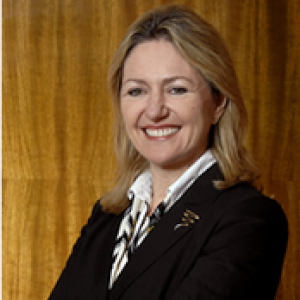The NSW legal services commissioner has questioned whether a public inquiry is necessary to investigate allegations of misconduct against deputy senior crown prosecutor Margaret Cunneen SC.

On 30 October, the Independent Commission Against Corruption (ICAC) announced it would hold a public inquiry to decide whether Cunneen and her son, Stephen Wyllie, intended to pervert the course of justice at the scene of an accident earlier this year. Cunneen allegedly counselled Sophia Tilley, Wyllie’s girlfriend, to “pretend to have chest pains” to avoid being breath-tested after being involved in a serious car crash.
The matter has, however, led legal and political figures to question whether the incident warrants a public inquiry.
“It’s difficult to see, in this particular instance, the path of systemic corruption that [ICAC] could be exploring,” said acting NSW legal services commissioner Jim Milne when speaking with Lawyers Weekly.
A more vehement critic of the Inquiry, Professor Gary Sturgess, one of the architects of ICAC, told the ABC that the case was not one of official misconduct but rather an event in Cunneen’s private life that should be handled by police.
Sturgess was head of the state cabinet office when ICAC was established by the Greiner government in 1989.
Milne would not comment on whether Cunneen’s alleged actions were unethical. He merely stated that the Office of the Legal Services Commissioner (OLSC) would investigate the complaint if ICAC ruled against Cunneen.
ICAC has brought in Queensland barrister Alan MacSporran QC to preside over the inquiry, claiming, “as this matter involves a senior public official involved in the administration of justice in New South Wales, the Commission considered it appropriate for a person from outside New South Wales to preside at the inquiry”.
Counsel assisting the commission will be Michael Fordham SC from 12 Wentworth Selborne Chambers in Sydney.
A reputation at risk
Cunneen was the prosecutor in the Bilal Skaf gang rape case which, in 2002, led to the passage of new laws increasing prison sentences for gang rapists.
She was elevated to silk in 2007 after five previous but unsuccessful attempts. The well-regarded prosecutor’s recurring absence from the list of senior counsel appointees sparked public criticism of the appointment process at the time.
In 2012, Cunneen was appointed by former NSW premier Barry O’Farrell to lead a special commission of inquiry into child sex abuse allegations in the Catholic diocese of Maitland-Newcastle.
She released a report into those allegations on 30 May of this year, the day before the car accident involving Tilley.
Cunneen has agreed to stand aside until ICAC concludes its inquiry.
In the public eye
All lawyers in NSW, regardless of seniority, are held to the same ethical standards; however, Milne admitted that well-known legal figures could be seen as more likely to bring the profession into disrepute because they are subject to greater public scrutiny.
“The things that get reported and the individuals who get reported, to some extent depends on their public profile,” Milne said.
He hastened to add that this was “a broad issue” that required more extensive discussion.
Overall, complaints against lawyers have remained relatively stagnant despite an increase in the number of practitioners in NSW.
For the financial year ended 30 June 2014, the OLSC conducted 173 disciplinary actions.
Milne said this figure was encouraging when compared to other state and overseas jurisdictions.
“[NSW does] pretty well in terms of the number of complaints lodged compared to the number of lawyers about whom complaints can be made,” he said, adding that lawyers are generally more aware of their ethical obligations since law schools introduced ethics courses to the curriculum.